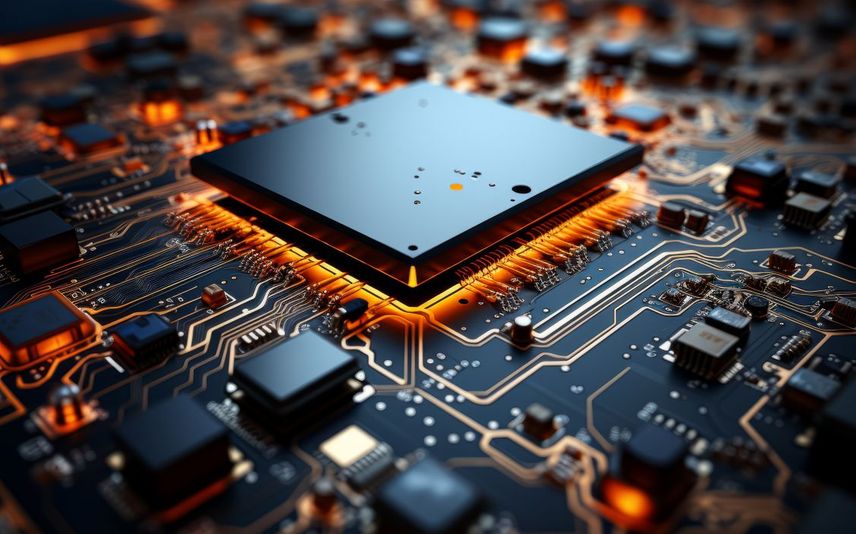Donald Trump has indicated that new tariffs on semiconductor chips are forthcoming, adding another layer to the ongoing trade tensions, particularly with China. This announcement, made on April 14, 2025, signals a potential shift in the landscape of the global technology industry, impacting supply chains, manufacturing strategies, and international relations.
The move comes shortly after the Trump administration provided temporary exemptions for certain electronics, including smartphones and computers, from previously imposed tariffs. However, this relief appears to be short-lived, as these devices may soon be subject to new duties as well. Commerce Secretary Howard Lutnick confirmed that critical technology items from China, including semiconductors, will face new tariffs within the next couple of months, as part of a broader national security investigation into the electronics supply chain. These upcoming tariffs are intended to be separate from the existing "reciprocal tariffs."
The rationale behind these tariff adjustments is to bolster domestic semiconductor manufacturing, reduce reliance on foreign supply chains, and address national security concerns. The US government aims to protect domestic investments made under the CHIPS and Science Act, which allocated $52.7 billion to enhance domestic semiconductor production and research. Trump has long decried foreign production of drugs and chips as a threat to national security and has threatened to impose tariffs on imports in a bid to revive American manufacturing of those products.
The implications of these tariffs are far-reaching. For the semiconductor industry, companies reliant on Chinese imports will face logistical challenges, including procurement delays and increased lead times for critical components. Higher tariffs will translate to increased costs for manufacturers, which may be passed down the supply chain, ultimately affecting consumer prices. This could make electronic devices such as smartphones, laptops, and electric vehicles more expensive for US consumers.
In response to these tariffs, companies may need to reassess their manufacturing and investment priorities. Some companies may shift their procurement strategies to prioritize US-based manufacturers or increase localization of semiconductor production through joint ventures. This could lead to a more resilient and diversified supply chain in the future. Some are considering moving operations out of China to Southeast Asia, primarily Vietnam, Malaysia, and Thailand, to mitigate tariff exposure. Countries like India and Mexico are also positioning themselves as alternative manufacturing hubs, offering incentives to attract semiconductor investments.
The tariffs also have implications for international trade relations, potentially leading to retaliatory measures and increased protectionism. Countries affected by US tariffs may consider reciprocal actions, leading to a more fragmented global trade environment. China has already responded to rising tensions by raising tariffs on US imports to 125%.
Despite the potential disruptions, the tariffs could also spur innovation. Companies may invest more in automation, advanced node development, and alternative materials to reduce dependency on foreign suppliers. This could accelerate technologies such as EUV lithography, chiplet architecture, and AI-driven design.
While the long-term effects of these tariff changes remain to be seen, they are expected to have a significant impact on the semiconductor industry, shaping its future in terms of costs, supply chains, innovation, and geopolitical relations.

















